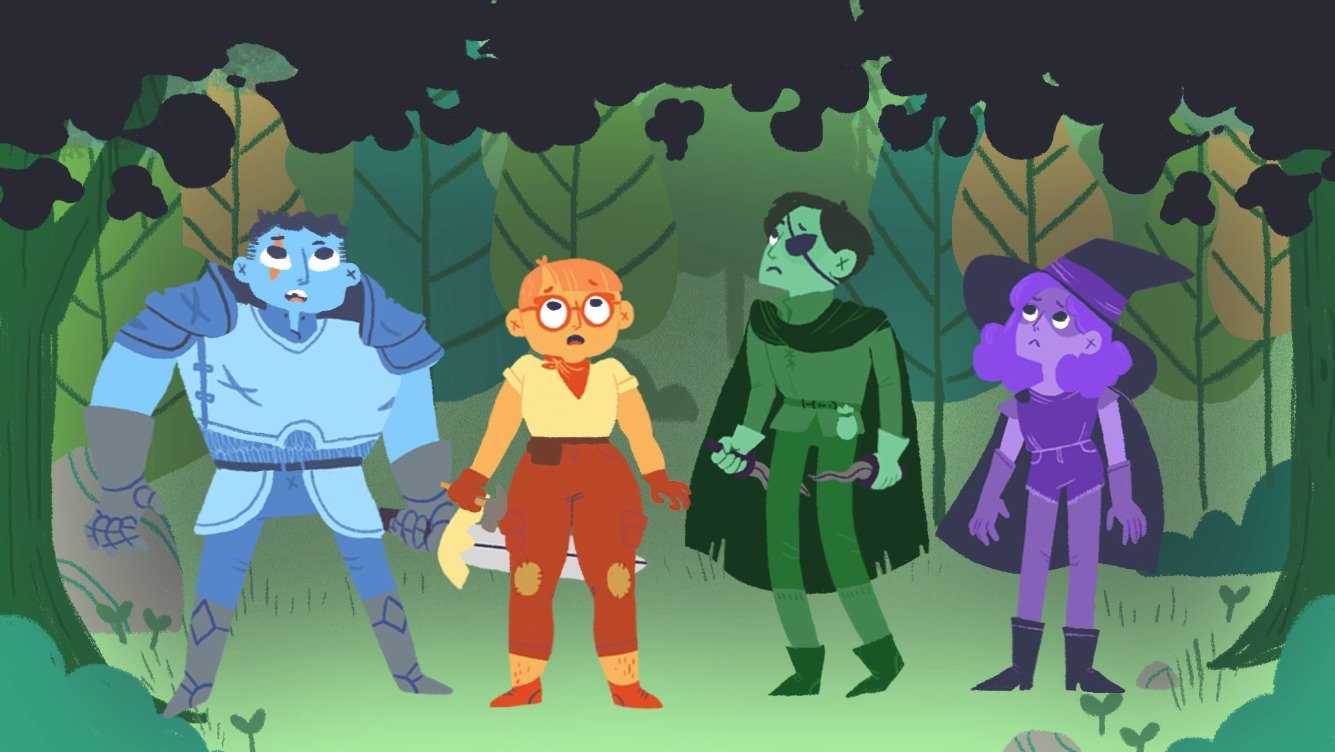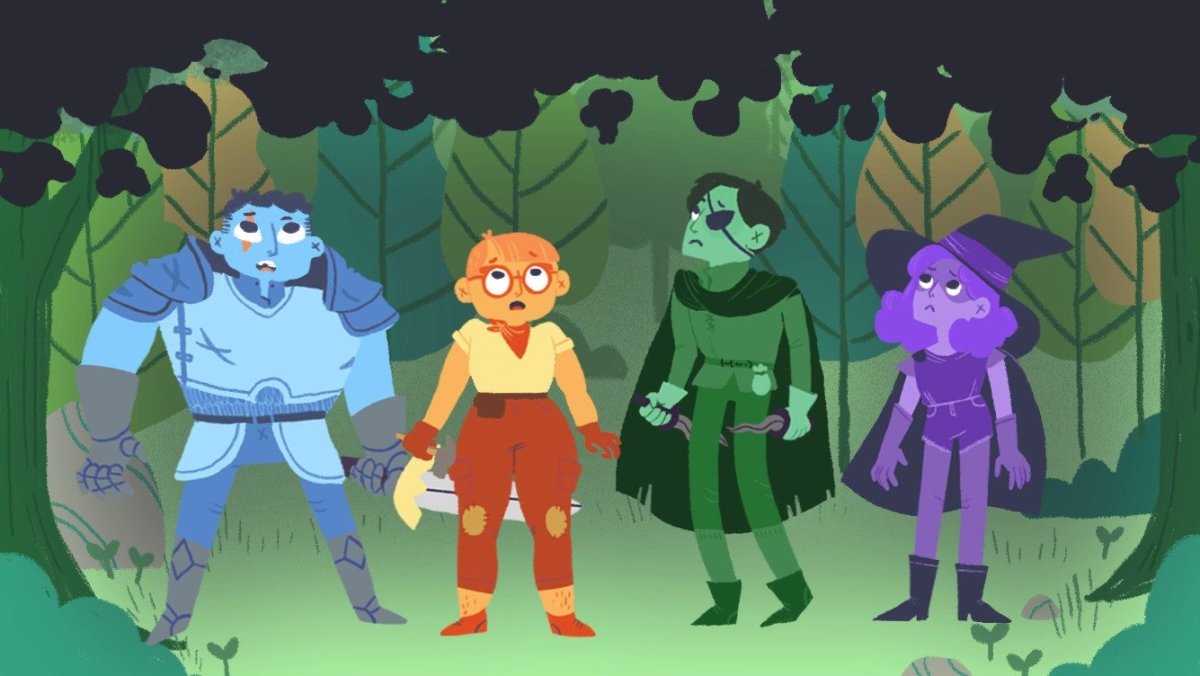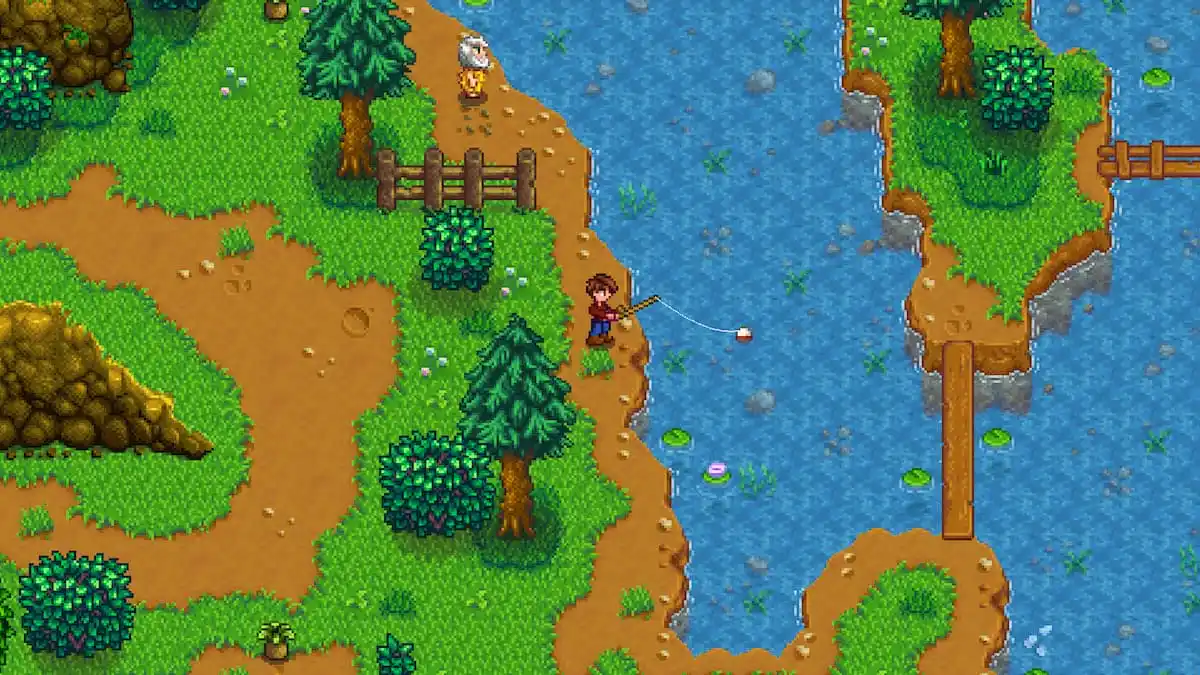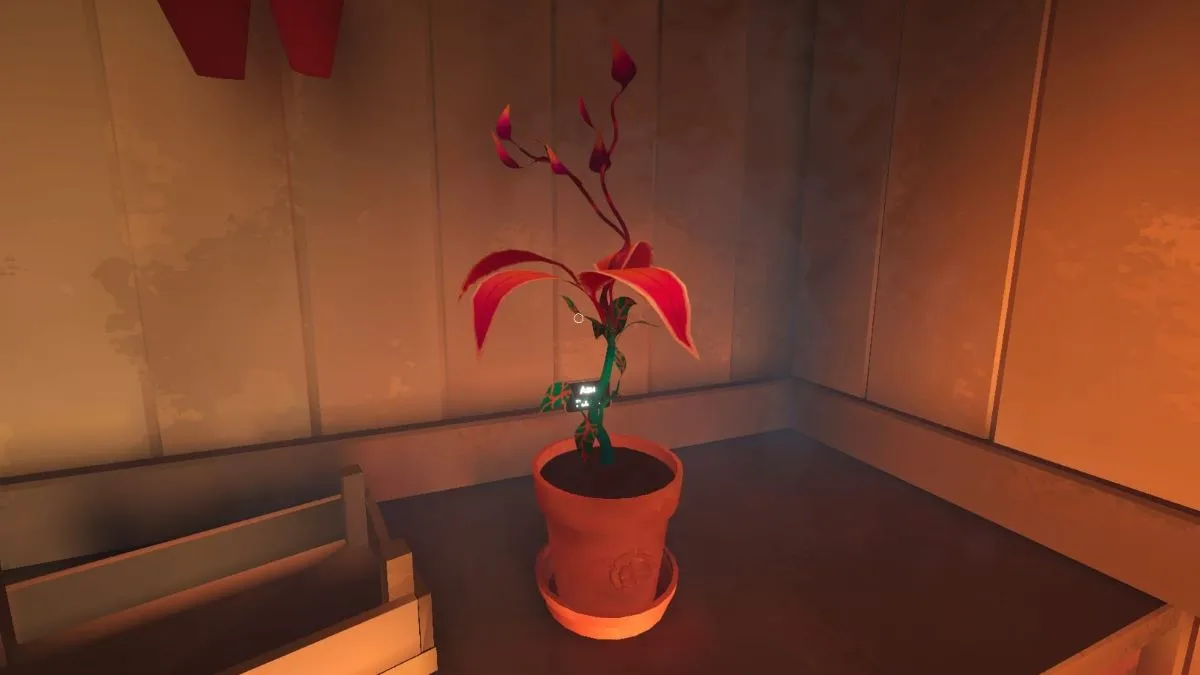Can Terry Cavanagh do no wrong?
Terry Cavanagh has created three major releases now. The first was VVVVVV and it was incredible. Then, he followed it up with Super Hexagon and guess what — it blew everyone away. With a team helping him this time around, is it all but inevitable that this game is another hit?
We reviewed both prior titles with 10/10 but surely no one is capable of creating three games with perfect scores, right?

Dicey Dungeons (PC)
Developer: Terry Cavanagh
Publisher: Terry Cavanagh
Released: August 13, 2019
MSRP: $14.99
Dicey Dungeons is a rogulike/lite/whatever with a game show set dressing. The player characters enter a dungeon, after being turned into literal dice, for a chance to win a very special (to them) prize. To win, they must defeat monsters along the way while growing in power, culminating in a boss fight on the final floor. There are six classes to select from and each one plays very differently. Seriously, I cannot understate how different every class feels, it is incredible.
At first, I felt as if the game should have had an introduction to each character’s mechanics. I found myself asking “Why is this happening? Where did that come from? What does this button do?” However, it never took too long for the answers to reveal themselves. And each time I had an “ah-hah” moment. Then I realized that depriving the player of those moments, while technically a faster and more straightforward way of approaching teaching, is basically robbing them of those small accomplishments. On top of this, there are a ton of smaller interactions between dice, enemies, and loot that are downright exciting to discover on your own.
On top of that, I feel as if it was a very conscious decision on developer Terry Cavanagh’s part to withhold this information from the player. There are pieces of information that can be hovered over to reveal explanations, and there is one character’s mechanic, the Engineer, that has a brief explanation the first time it occurs because it’s probably one of the more complicated ones. Dice can be burned, frozen, blinded, and more — all of which are explained with a simple mouse-over. Seems like that sense of discovery is a very deliberate choice, and one that I couldn’t agree with more after experiencing it.
One of the simple beauties of Dicey Dungeons is how the dice rolling mechanics stay the same but each character uses them so uniquely. Battles are turn-based and decided by the luck of random dice rolls. The amount of dice varies on a handful of factors depending on the character, but essentially each round provides the players with dice which are then used to initiate abilities (which are treated as loot). The abilities can do damage, provide buffs or debuffs, heal, and even alter the dice numbers. Some require specific numbers from the dice, others may require any even numbered die, while others are a little trickier and may require doubles or a few dice all together to activate.
The goal of each battle is simple: kill the enemy before it kills you. Enemies have their own abilities and their own dice. This can present situations where, yes, the enemy gets super lucky and the player does not. This is definitely frustrating, but in my experience it happens rather infrequently. Plus, the game really is about mitigating those possibilities. It’s a great idea to use abilities that cover a wide range of bases: one that requires even numbers, one for odd, another for high numbers, and another for low. This isn’t always possible because even the abilities are randomized through loot.
As the player progresses through each dungeon floor, chests can be opened on the map to receive new loot, which grant abilities. Each piece of loot takes up either one or two available spots, and there are only six spots total. So soon enough, players are forced to choose which pieces of equipment work best with what they want to do. Shops are also present to sell pieces of loot for gold, which is accrued by killing enemies. Plus, loot is often rewarded upon leveling up.

Loot can also be upgraded, which is always super exciting! Most of the time a piece of loot becomes just straight up better, but some have their size reduced, allowing for more loot to be used at once. Don’t knock this upgrade! It’s not as flashy as increasing, say, damage numbers, but removing restrictions like that creates a ton more freedom and will let players use their dice better regardless of rolls. There really is a lot of strategy in each run.
Speaking of runs, they typically last around 20-30 minutes. After each character (except the hidden one) attempts one run, the game unlocks “episodes.” These put twists onto the rule sets of the game, generally forcing the player to play with a very specific playstyle. One episode, for example, reduces the player’s maximum health after every fight (among other twists). So do you avoid fights that aren’t necessary? Or would you rather stack defense and hope for the best? Even with constraints the player has some freedom in how they approach the run. Again though, luck rules everything in Dicey Dungeons.
Each character also has a limit break, which builds up as they take damage. These all have unique effects and learning when to use it becomes crucial. There are times where I’ve held my Limit Break for a specific set of dice, and then unleashed an insane single-turn victory on an enemy. And it felt good. There are moments where the rolls and abilities line up so damn well and it’s impossible not to sit back and just bask a turn well executed.

It feels so good to understand a character’s (or episode’s) mechanics and play to them. I was worried that the luck-based nature of the dice would make everything feel almost pointless. The game has so many smart abilities and mechanics to help mitigate that feeling, that as long as the player is open to exploring them, there should be little frustration (though some will always be present). The player is most susceptible to “bad luck” in the early game, but at the same time, that is when it is hardest to fail during a fight. It is an excellently balanced and well-crafted progression that somehow makes the player feel like they still have a ton of agency in a game centered around rolling dice.
And that’s the beauty of Dicey Dungeons: empowering the player by giving them interesting tools to tinker with and utilize literal random numbers thrown their way. It’s as if you assume the role of some superior being shouting “you think rolling four 1s will deter me?!” as you steamroll an enemy by using one die as an “odd” to trigger an ability that adds four shield to your health, another to do damage and re-roll, a third to add a new ability to the table, and the final to heal, after boosting it and/or combining it to make it a larger number.
There is a ton of content here to explore. Each of the six characters has six episodes to attempt, plus there are challenges layered on top of that. Many of the challenges will be achieve through playing the game normally, but some are good to keep in mind while playing to shoot for if the opportunity arrives. For example, scoring 40 damage in a single turn (that’s a whole lot!) Trust me, if you buy into this game, it will keep you busy for a very long time.

Then there are the visuals and the music. Oh god they’re both so good. The art and characters, created by done by Marlowe Dobbe, are clean and also super adorable. I could probably talk forever about the design of some of them, like the Sorceress. But I won’t because it would just be me gushing over every part of her design. The enemies’ personalities shine through their animation, abilities and their few lines of dialogue, players will enjoy getting to know them over the course of many playthroughs. And despite everything seeming so cute and adorable, there does seem to be some underlying darker themes…and then you talk to the baby squid and literally who cares about anything else at that point?
Chipzel is responsible for the soundtrack, and fans of Terry’s previous game, Super Hexagon, should instantly recognize the style. It’s an upbeat electronic mix that does a great job of building mood and complimenting the art style. The sound effects are also spot-on and are just a cherry on top of an already incredibly aesthetic. I’ve had the game open while writing this review just to listen to the bumpin’ title music (and to take a few turns in between paragraphs).

I had my doubts going into Dicey Dungeons, despite the pedigree present. I was worried the core reliance on random dice rolls would create a frustrating experience for the player. And while I’ve had those moments, I always felt that I could look back and say “that’s where I went wrong” and not “the random numbers just didn’t work out in my favor!” That alone is an incredibly feat. Stack it on top of six incredibly unique character mechanics, episodes that force the exploration of alternate playstyles, and an expertly crafted aesthetic, and you have another absolute slam dunk from Terry Cavanagh.
[This review is based on a retail build of the game provided by the publisher.]





